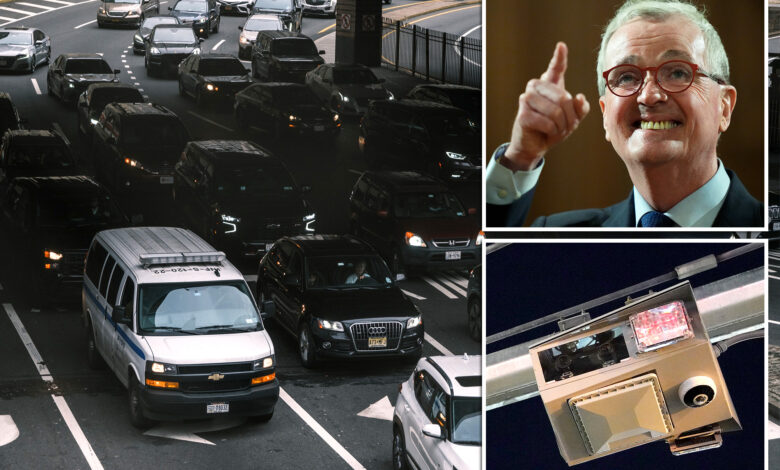NJ, feds to duke it out in court over $15 congestion pricing toll

The hotly contested issue of whether New York’s $15 congestion toll should go forward is hitting a federal courtroom this week as New Jersey seeks to block the measure.
Garden State lawyers will face off against attorneys for the US Department of Transportation, the Federal Highway Administration and the MTA Wednesday and Thursday in a Newark courtroom over whether a sufficient review was conducted to assess the impact of the toll on Jersey drivers.
If the feds win their bid to have the lawsuit tossed out, the new fee will be one step closer to becoming reality, despite a handful of other litigation.
There are four other lawsuits in both New Jersey and New York courts seeking to block congestion pricing, according to a report by Politico.
Last week, MTA’s board voted to approve a plan to charge drivers $15 to enter Midtown Manhattan below 60th Street, while trucks will face even higher tolls.
Advocates of the policy — the first of its kind in the country — say it will reduce pollution and peak-day congestion while generating billions that can go to improving the public transit system.
New Jersey Gov. Phil Murphy brought the suit against the feds in July claiming it unfairly targeted residents of his state.
Federal Judge Leo Gordon will be deciding the outcome of this week’s hearings, which will focus on FHA’s alleged rubber-stamping of the MTA’s finding that there would be “no significant impact on the human or natural environment” if congestion pricing went through.
New Jersey is asking Gordon to rule that the FHA shouldn’t have approved the MTA’s report and the whole plan needs to undergo further studies.
The judge will presumably need to rule before June when the toll is set to take effect.
Like the New Jersey case, many of the other suits claim an insufficient review was conducted to study the environmental effects on the places where traffic will be redirected to.
In January, a teachers union teamed up the Staten Island borough president in a similar claiming city workers will have to disproportionately shoulder the new tolls.
Other suits claim the plan would make pollution worse, by creating new traffic patterns that would cause bottlenecks in certain areas of Manhattan.




